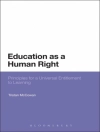The recent rise of antisemitism in the United States has been well documented and linked to groups and ideologies associated with the far right. In From Occupation to Occupy, Sina Arnold argues that antisemitism can also be found as an ‘invisible prejudice’ on the left.
Based on participation in left-wing events and demonstrations, interviews with activists, and analysis of left-wing social movement literature, Arnold argues that a pattern for enabling antisemitism exists. Although open antisemitism on the left is very rare, there are recurring instances of ‘antisemitic trivialization, ‘ in which antisemitism is not perceived as a relevant issue in its own right, leading to a lack of empathy for Jewish concerns and grievances. Arnold’s research also reveals a pervasive defensiveness against accusations of antisemitism in left-wing politics, with activists fiercely dismissing the possibility of prejudice against Jews within their movements and invariably shifting discussions to critiques of Israel or other forms of racism.
From Occupation to Occupy offers potential remedies for this situation and suggests that a progressive political movement that takes antisemitism seriously can be a powerful force for change in the United States.
विषयसूची
Acknowledgments
Introduction
1. Antisemitism Old and New
2. A Quick Look Back
3. What’s Left of the Left: Recent Movements, Recent Debates
4. Interviews with Activists
5. Conceptualizations of Antisemitism and Jews
6. Antiracism
7. Israeli-Palestinian Conflict
8. Holocaust Remembrance
9. The USA and Its Political Structures
10. Critique of Capitalism: Occupy Wall Street as Case Study
11. ‘Different Ways of Being Jewish’: Jewish-Left Identities
The Invisible Prejudice: Conclusions
Appendix I: Overview of the Interviews
Appendix II: Transcription Rules
Appendix III: Abbreviations
References
Index
लेखक के बारे में
Sina Arnold is a post-doctoral researcher and lecturer at the Center for Research on Antisemitism at Technische Universität Berlin. A social anthropologist by training, her work focuses on contemporary antisemitism and racism, nationalism and (post)national identities, social movements, and educational work against discrimination.







![का आवरण Sarah B. B. (University of Central Florida, Orlando, FL, USA) Bush & Kristin L. L. (Bellarmine University, USA) Cook: Simplifying STEM [6-12] का आवरण Sarah B. B. (University of Central Florida, Orlando, FL, USA) Bush & Kristin L. L. (Bellarmine University, USA) Cook: Simplifying STEM [6-12]](https://static.worldofdigitals.com/thumb_webp/414/9781071932414.webp)




